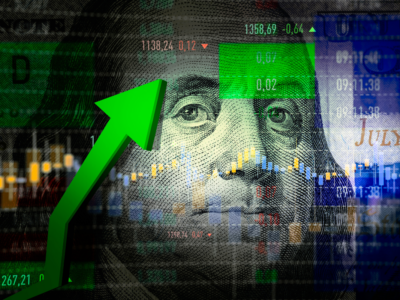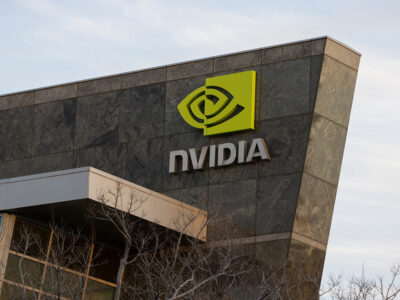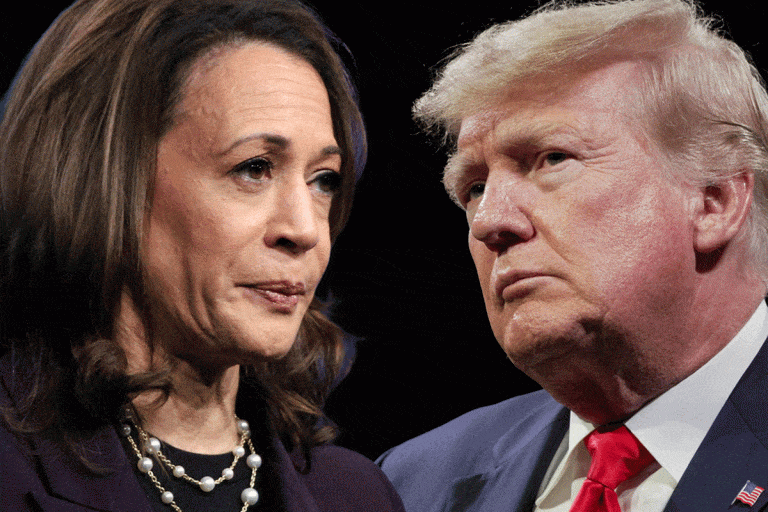Recent polls show a tight race between former President Donald Trump and Vice President Kamala Harris in the upcoming US presidential election.
A Reuters/Ipsos poll conducted in late August revealed Trump’s approach to the economy and employment was preferred by 43 percent of registered voters compared to 40 percent for Harris, though this difference falls within the margin of error, according to Reuters. On crime and corruption, the candidates were tied at 40 percent support each. National polls have shown Harris building a small lead since entering the race in July following President Joe Biden’s withdrawal.
The outcome of the US presidential election will significantly impact financial markets and trade, reshaping the global economy in drastically different ways depending on who wins, experts told Arabian Business.
As Donald Trump and Kamala Harris go head to head, the global investor community is bracing for major shifts in fiscal policy, international trade, and geopolitical relations.
With the November election drawing closer, here’s what investors need to know about potential impacts on specific industries, global markets, and personal investments, based on expert analysis of who may be sitting in the Oval Office come February 2025.
Market reactions and sector impacts
The stark contrast between the candidates’ proposed policies is likely to trigger divergent market reactions.
According to Nicolas Michelon, CEO of Asia Intelligence Advisory and Editor of Asia Power Watch, “global and financial markets in particular, are still pricing in a Trump victory” and markets will “be much more welcoming” of a Trump win versus a Harris win “for obvious fiscal reasons.”
The tech sector appears to already be leaning towards a Trump presidency, with backing from major tech players in the U.S. including Elon Musk and prominent venture capitalists Marc Andreesen and Ben Horowitz.
“We are seeing a lot of the big guys in Silicon Valley already throwing their weight in behind a Trump presidency, not just Elon Musk,” Michelon said. He added that he expects a second Trump administration to continue its war on Chinese technology “which will definitely play in favour of US tech.”
However, Joseph Dahrieh, Managing Principal at Tickmill, offered a contrasting view for a potential Harris administration: “The technology sector… could benefit from Harris’s policies.”
The energy sector is another area where the candidates’ policies diverge significantly. Investors can expect “lesser pressure on energy companies” under Trump versus a Harris administration “which will most likely continue to push very aggressively for renewables,” Michelon told Arabian Business.
“We all know how critical [Trump] is of energy transition. That is not to say that he is denying climate change but he questions and criticises very heavily the speed at which this transition is being made,” he added.
According to Dahrieh, the banking and energy sectors will most likely see gains under Trump due to his focus on deregulation.
“In contrast, a Harris presidency could boost companies focused on renewables and energy efficiency.”
Interestingly, Michelon predicted that the defence sector will benefit from a Harris presidency because he believes that any Democratic president would mean “more proxy wars, which is good news for the defence industry.”
Abishur Prakash, Geopolitical Strategist and founder of The Geopolitical Business Inc., believes that healthcare, construction, and defence stand to gain the most from either candidate winning.
“Reinvigorating the US healthcare system, rebuilding infrastructure, and upgrading America’s military, will be key objectives of both Trump and Harris,” he said.
“However, some sectors stand to lose more than others depending on who wins. The technology world, for example, is likely to see far more limits and restrictions on business in China under Trump than under Harris.”
Commodities and financial markets
Stocks
“A Trump win could potentially lead to more significant short-term gains, driven by expectations of continued corporate tax cuts and deregulation policies,” Dahrieh predicts.
“Conversely, a Harris victory might result in more moderate growth, anticipating possible increases in corporate tax rates and tighter regulations.”
Bonds
The bond market is likely to react differently to each candidate’s fiscal policies.
“Under a Trump presidency, the bond market may experience increased volatility due to his market-oriented policies and less focus on public debt sustainability,” said Dahrieh.
In contrast, “a Harris presidency might result in a more stable bond market environment.”
Cryptocurrencies
The cryptocurrency market could see significant shifts based on the election outcome.
“A Trump presidency might create a more favourable environment for cryptocurrencies, given his recent pro-crypto stance and promises to dismantle current regulatory frameworks,” Dahrieh added.
Gold and oil
Gold prices could be affected differently under each administration.
“A Trump presidency could be bullish for gold prices,” while a Harris administration “might support the current bullish trend,” said Dahrieh.
As for oil, Dahrieh believes a Trump presidency is generally seen as “favourable” for traditional oil and gas companies.
A Harris administration, however, is expected to “enforce stricter environmental regulations, potentially challenging oil and gas companies,” he added.
Global trade and emerging markets
Both candidates are likely to pursue protectionist policies, albeit at different paces, the experts told Arabian Business.
“For Harris, it will be a slow-moving train, where protectionism is slowly applied on multiple fronts. For Trump, it will be immediate, as Trump potentially imposes a 60 percent flat tax on all Chinese imports and a 10 percent tax on imports from everywhere else, on day one,” said Prakash.
Dahrieh added that he believes a Trump administration would implement more aggressive trade measures, including across-the-board tariffs and higher tariffs on Chinese imports.
“This protectionist approach could weaken emerging markets, increase consumer prices, and disrupt global supply chains,” he said.
Geopolitical risks and foreign policy
The geopolitical landscape is likely to shift dramatically depending on the election outcome, with significant implications for investors.
“Under Trump, investors need to be prepared for a fight with China unlike anything seen so far,” said Prakash.
“Whether this means massive restrictions on US outbound investment, blacklisting Western firms who continue doing business in China, or banning non-Western firms with links to China, the options for Trump are endless.”
Michelon added nuance to this perspective. “If I were Xi Jinping, I’d prefer to deal with a Trump administration than a Harris administration… Trump will do it in a very Trump way which is in a very open, direct way [of] confrontation.”
A Harris administration, according to Michelon, will continue the confrontation but in an indirect way. “They will offer olive branches when it’s necessary so the situation doesn’t go out of control, but they will discreetly continue the confrontation through proxies which makes it much more difficult to deal with when you are sitting in Beijing,” he stated.
However, he emphasised that US-China relations are likely to continue to deteriorate. “I don’t think markets are expecting any improvement regardless of who wins in November, but the situation will be handled very differently [by either candidate.]”
Market volatility is likely to increase in the run-up to and after the election.
“Election day itself could see sharp market movements as investors react to results and assess the incoming administration’s potential economic policies,” said Dahrieh.
As the election approaches, investors face a complex landscape of potential outcomes and their associated risks and opportunities.
“Regardless of who wins, investors have to prepare for geopolitical curveballs hitting the world, and Trump or Harris being forced to solve them,” said Prakash.
With the global economy at a crossroads, the upcoming US presidential election promises to be a pivotal moment for investors worldwide.






